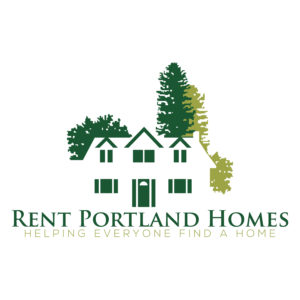Are you just getting started with owning rental properties? If so, you’ve come to the right place!
There’s no doubt that owning rental properties is one of the very best investments you can make because your rental will generate consistent cash flow for you while you own it.
In this article we will share with you several quick tips that you can use to generate more income as you grow your portfolio of rental properties.
Quick Tips For Landlords
Even the best tenants can lose it in the end, and deliver the rental property back to you in poor condition.
Poor planning on their part costs you time and money, both in restoring the property for a new lease, and in pursuing the former tenant for reimbursement.
Fortunately, there’s an easy to way to avoid this problem in many cases. It’s as simple as planning ahead, and providing the exiting tenant with a move-out letter.
Served in ample time before the move-out date, this letter will remind tenants about their obligations, including:
The last month’s rent must be paid in full, and not deducted from the deposit;
How and when the deposit will be returned; and, Detailed instructions regarding cleaning and removal of trash and other items from the property.
The letter should also set a time for the move-out inspections, and encourage tenants to be present. This final meeting can prevent legal disputes over security deposit deductions, and save you the trouble of picking up after the tenant.
More Quick Tips For Landlords
1. The ability to report rental history on a tenant’s credit report is the single most important development that has occurred in tenant screening in years because it puts landlords on par with other creditors. TVS landlords now can report monthly rental history to TransUnion by signing up to Report Rent Payments. This is an amazing tool — so use it!
2. Would you like to see a database of tenants — both good and bad — to take some of the guesswork out of renting? You have it: Landlord Credit Bureau. TVS’s affiliate website tracks info shared by other landlords including rent payments history. This searchable database allows landlords to flag career problem tenants who otherwise would slip through the cracks and cause thousands of dollars in income loss.
Do yourself — and other landlords — a favor and share information onLandlordCreditBureau.com.
3. Warn tenants ahead of time that the rental application is a legal document. Don’t place the warning in the fine print — include it in a cover letter so that rental applicants understand from the start that lies equal fraud.
4. Invoice tenants five days before rent is due. It is astonishing how many tenants space out the first of the month. An invoice helps tenants plan ahead.
5. Recognize the difference between a pet and a companion animal. A companion is any animal that is prescribed by any health professional for a tenant with a disability to treat the disability. Create a checklist that summarizes the policy for companion animal requests. Landlords cannot ask personal questions about the tenant’s disability, and cannot apply pet restrictions — size, breed, and so on — to companions. A checklist will help to avoid costly mistakes.
6. Warn tenants in advance that routine property inspections are required. The average frequency is every three months. The prior warning provides incentive to care for the property in the near term. Otherwise, tenants tend to think they can clean and fix everything when they move out. Unfortunately, they run out of time, and that doesn’t happen.
If you don’t plan to conduct inspections as often as the lease provides, change the language in the lease agreement. Missing a scheduled inspection trains the tenant to ignore the lease — and the landlord.
7. Schedule remodeling projects around planned vacancy periods rather than subjecting the current tenant to inconvenience that will benefit only future tenants.
Complaints over quiet enjoyment or environmental hazards are a common cause of income loss.
8. Update the lease agreement for incoming tenants. Relevant provisions to consider this year include reporting rent payments, marijuana restrictions, and any limits on short-term vacation subletting.
9. Manage move-outs like there is no security deposit. A successful tenancy is one where the landlord can return the full deposit. Strengthening tenant screening, clear language in the lease agreement, a walk through about a month ahead of move-out, and a cleaning checklist all contribute to the tenant’s success in returning the property in good condition.
10. Conduct new tenant orientations. Tenants who know the rules and understand the consequences are far less likely to be disruptive or cause property damage. After going over information in person, leave behind written instructions or point tenants to a web page they can access when they need a reminder.
Get Portland Oregon Property Management Here
For Portland Oregon Property Management contact Property Management Systems today by calling (503) 515-3170 or click here to connect with us online.






